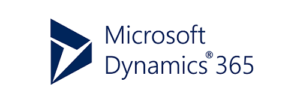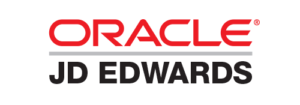ERP Solutions
Streamline processes and information across your organization.
Streamline processes and information across your organization.
Do you want to make measurable improvements and efficiency gains in your business? With a well-implemented cloud-based ERP, you’ll realise more value from your resources and assets, make better business decisions, compete more effectively, and ensure your leading operational processes are optimised.
You’ll gain unprecedented transparency across your departments, branches and companies, no matter what currencies, countries, or financial and legal compliance requirements your organisation spans.



ERP stands for Enterprise Resource Planning. An ERP integrates all the essential business processes you use every day into a single, fully featured system. Think financials, inventory, supply chain, customer relationship management (CRM), order management, HR, manufacturing and more, rolled up into one application. Most importantly, all functions share a centralised database, so your data is always accurate, up-to-date, and available in real-time between departments. All business transactions and activities are processed in one system, with a single interface so you don’t need to skip from one solution to the next. It’s a complete one-stop shop!
While it may differ from system to system, these are the main functions of a modern ERP:
The heart of any ERP is the financial management module which handles everything from invoicing and accounts, to tracking the flow of money, forecasting, purchases, and payroll. Often in multiple currencies.
The CRM module supports and improves and the sales and marketing processes. It stores data related to customers and prospects, and can track buying habits and contact histories.
The HR module processes all the tasks related to managing your employees, including timesheets, payroll (including automatic payments and tax deductions), benefits, onboarding and offboarding.
In order to improve Supply Chain Management, the SCM module works with the inventory management module, using real-time data to optimise manufacturing and distribution processes.
And the Inventory Management System module processes order fulfilment and tracks warehouse inventory in real time, so you don’t need to do it manually.
Other modules available include Business Intelligence (BI) and Manufacturing. To note, new modules are continually being added to meet the demand of specific industries sectors.
The list is long, but here are eight key benefits:
The ERP Implementation Life Cycle is the end-to-end process of implementing the solution in your business. It starts with planning and organisation, system selection and installation, data conversion and loading, user training and procedure development, testing and validation, cut over and “go live” and, finally, follow-through and project completion.
Most modern ERPs are based entirely in the cloud, or are hybrid solutions which use a mix of on-premises, private, third-party or public cloud services.
Cloud-based ERP has several significant benefits for your business or enterprise. First – no more upgrade pains! ERP vendors make a huge investment in keeping their software current. They now make regular updates, with minimal disruption to your business.
Next – if you choose a cloud-only solution, you move from a CAPEX to an OPEX model. Having to spend often hundreds of thousands on new servers or fixing corrupt data is a thing of the past.
And then, it’s far easier to support a mobile or remote workforce. As cloud systems are, well, in the cloud, all that’s needed is an internet connect and you can, with the right level of permission, access real-time data, and the business processes needed to do your job.
ERP software integrates all functions of a business operation, including financials, customer records, product planning, development, manufacturing processes, sales and marketing and more. So, using the concept of a master database, the ERP facilitates the flow of accurate, consistent, real-time information between all these integrated functions, and additionally manages connections to your external stakeholders (think suppliers, partners and parent companies).
Data migration is a systematic and phased approach for transferring your data from (usually multiple) old systems to the new ERP. There’s normally a specific migration methodology used to ensure success. Records to be migrated tend to include customer, vendor and item master files, bills of material, production facilities and routings, general ledger chart of accounts, etc.
Datasonics Systems and Solutions India Limited
No 1, Street 2A, Pleasant Avenue,
Sakthi Nagar,Porur, Chennai 600116.
Email : info@datasonicscorp.com
Datasonics systems and Solutions UK Limited
Kemp House 160 City Road,
London, EC1V 2NX.
Datasonics systems and Solutions FZ LLC
FDBC0957, Service Block
Al Jazirah Al Hamra,
RAKEZ Business Zone-FZ
Ras Al Khaimah, United Arab Emirates
